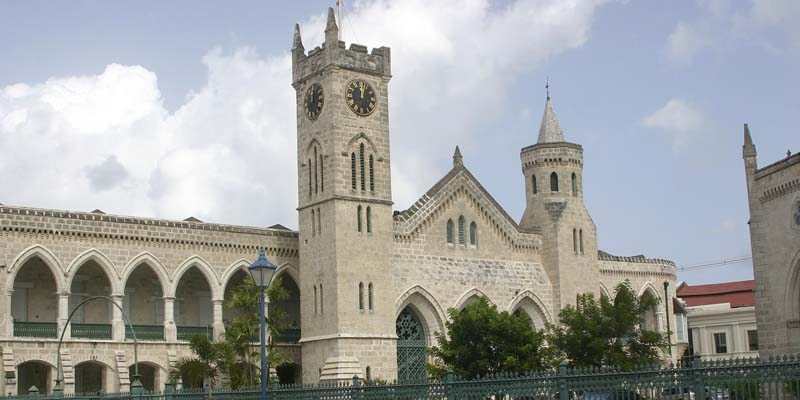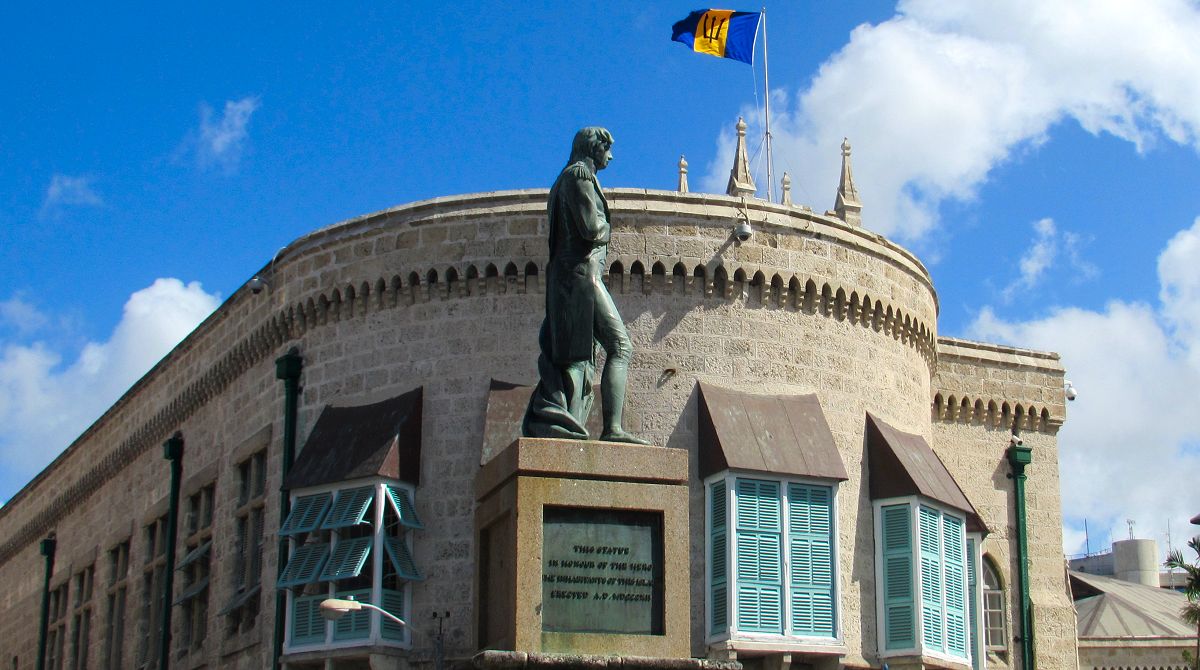Welcome to North America-Barbados
The history of the early settlement of Barbados is being revised as a result of recent archaeological discoveries unearthed at the site of Port St. Charles in the northern parish of St. Peter. Artefacts and evidence point to settlement some time around 1623 B.C. The first indigenous people were Amerindian - the Arawaks, also known as the Taino - who arrived in the country from Venezuela. In 1200, the Arawaks were conquered by the Caribs, a cannibalistic people said to be very warlike and extremely savage. In the History of Barbados, it is reported that Caribs ate an entire French crew in 1596. The first Europeans to land on Barbados were the Portuguese, who stopped en route to Brazil. Portuguese explorer Pedro a Campos named the island Los Barbados (bearded-ones), presumably in recognition of the island's fig trees, which have a beard-like appearance. Despite the Caribs' warlike nature, the island was taken over by the Spanish in 1492, and the Caribs were enslaved. Slavery, and the contagious European diseases small pox and tuberculosis ended the Carib presence on the island. However, the Spanish chose not to stay, and left the island open for anyone who wanted to colonise it. The first English ship arrived on 14 May 1625 under the command of Captain John Powell. He claimed the island on behalf of King James I. On 17 February 1627, Captain Henry Powell landed with a party of 80 settlers and ten slaves to occupy and settle the island. That expedition arrived at what is now called Holetown, formerly Jamestown, on the west coast of the island. The colonists established a House of Assembly in 1639, at that time only the third Parliamentary Democracy in the world. Within a few years, much of the land had been deforested to make way for tobacco and cotton plantations. During the 1630s, sugarcane was introduced. The production of sugar, tobacco and cotton was heavily reliant on labour from indentured servants. White civilians who wanted to emigrate overseas did so by signing an agreement to serve a planter in Barbados for a period of five or seven years. To meet the labour demands, people were kidnapped in England, and convicted criminals were also shipped to the island. Descendants of the white slaves and indentured labour (referred to as Red Legs) still live in Barbados among the black population in St. Martin's River and other east coast regions. However, with the growth of the sugarcane industry, there was need for more labour. Slaves were supplied by Dutch Merchants who sourced them from West Africa. The slaves were forcibly taken from Sierra Leone, Guinea, Ghana, the Ivory Coast, Nigeria and Cameroon. Many slaves did not survive the journey from Africa, but many thousands still reached their destination, and today the population of Barbados is predominately of African descent.
Culture
Barbados has a rich cultural heritage which is a fascinating mélange of African, European and (to a lesser extent) other influences. This blend has become the unique expression of the Barbadian identity and is clearly evident in various facets of the Barbadian way of life. Barbadians are known to be hospitable, warm and inviting people, who take pride in welcoming visitors to their shores. Each year, there are a number of local festivals. Chief among them is Crop-Over, held in July/August of every year and signalling the end of the sugar cane harvest. Crop-Over is one of the Caribbean's biggest festivals and is a graphic display of the skill, creativity, and cultural traditions of the country and its people.Government
Barbados has had uninterrupted parliamentary government since 1639 and has been a sovereign independent state within the Commonwealth since 1966. The first elections based on universal adult suffrage took place in 1951. system but have adapted to suit local circumstances. Since 1955, Barbados has had two major political parties - the Barbados Labour Party and the Democratic Labour Party. Until 2003, each party had served two terms in office alternately.Emblems & Customs
Barbados as a sovereign nation has several national symbols tor represent the state and our proud people. Here we explain some details about these emblems and customs.Our Public Holidays
New Year - January 01Errol Barrow Day - January 21
Good Friday - April 18
Easter Monday - April 21
National Heroes Day - April 28
May Day - May 01
Whit Monday - June 09
Emancipation Day - August 01
Kadooment Day - August 04
Independence Day - December 01
Christmas Day - December 25
Boxing Day - December 26

